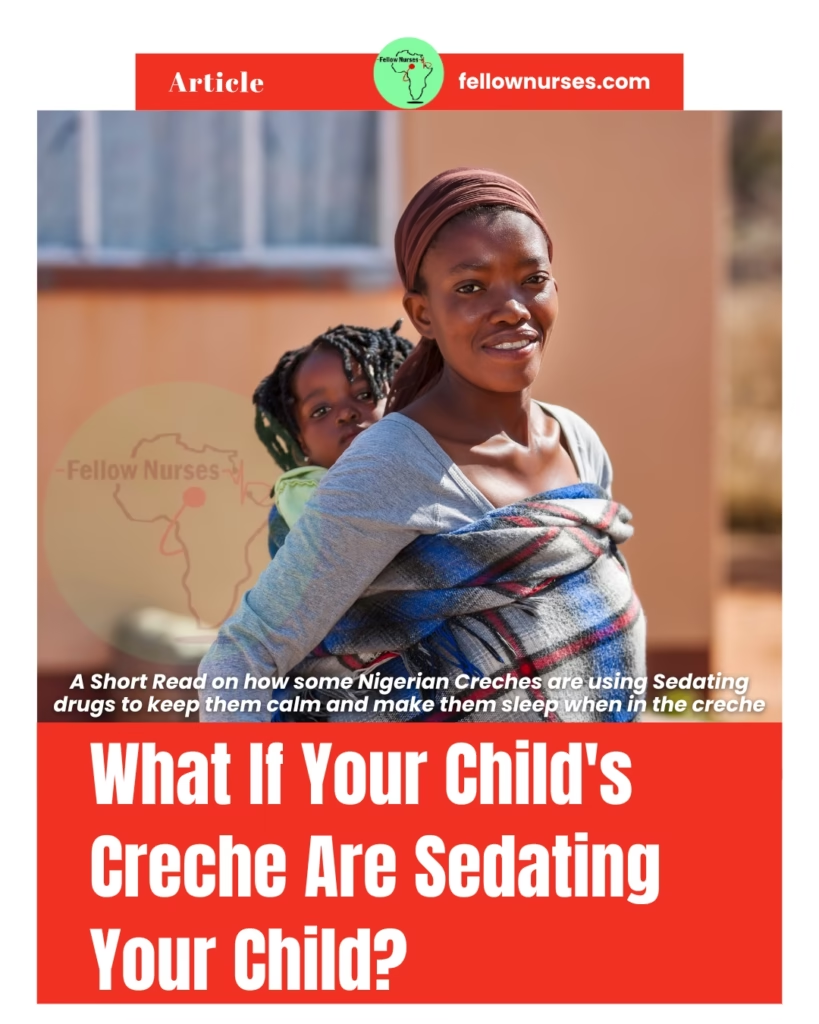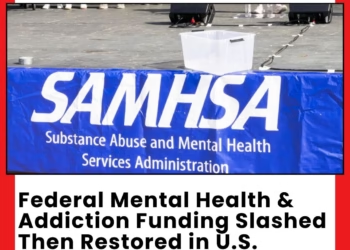Fellow Nurses Africa | Lagos, Nigeria | 20 September 2025

Recent reports from Nigerian media have raised serious concerns about the safety of children in certain creches and daycare centres. Allegations suggest that some caregivers resort to sedating children with medicines, not to treat illness, but simply to make them sleep and remain quiet.
While these reports are not yet backed by large-scale government investigations, they highlight the urgent need for parents and society to pay closer attention to childcare practices.
Why This Is Dangerous
-
Health Risks Medications like sedatives, antihistamines (e.g., diphenhydramine/Benadryl), or even melatonin may cause drowsiness. But when given without medical supervision, they can trigger breathing problems, seizures, heart complications, or even death in children.
-
Psychological Impact: Sedating a child to enforce silence or sleep deprives them of normal play, social interaction, and developmental stimulation.
-
Ethical and Legal Concerns: No reputable creche should give medication unless prescribed by a licensed medical professional and authorized by parents.
What Parents Should Watch Out For
-
Unusual sleepiness: If your child always seems excessively drowsy after daycare.
-
Changes in behavior: Sudden lethargy, irritability, or lack of energy.
-
Vague responses: If caregivers cannot clearly explain a child’s sleep pattern or give inconsistent stories.
-
No clear medication policy: Every registered creche should have a written policy requiring parental consent before administering any drug.
Steps Parents Can Take
- Ask for the creche’s license and confirm it is properly registered.
- Request their medication policy in writing.
- Monitor your child’s health closely after pickup.
- Speak up immediately if you suspect drugging, seek medical evaluation and report to the police or child welfare agencies.
- Choose creches with open-door policies where parents can drop in unannounced.
What Society Must Do
-
Government action: Stronger regulation, unannounced inspections, and accountability for offenders.
-
Public awareness: Parents and communities must know the warning signs and demand transparency.
-
Collective responsibility: Every child deserves safety, dignity, and care not sedation for convenience.
Daycare should be a safe haven where children learn, play, and grow, not a place where their health is secretly put at risk. Parents, caregivers, and regulators must work together to expose and prevent any harmful practices. Protecting children is a shared duty, and silence only enables abuse.
Do you have a Daycare sedation story , kindly share with us











A lot of people are opening creche centers, not because they care about the children but just to make money. Creche centers should be watched closely.
The above actions should be taken to protect the health and well-being of children. They deserve to grow under normal conditions.